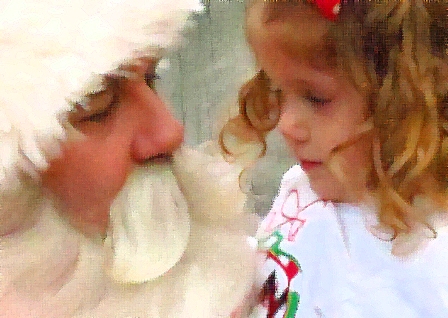Is Santa Claus A Lie?

Parents face a moral dilemma when they tell their children about Santa Claus every December. Are they lying, or allowing children to experience magic?
Every December millions of parents worldwide participate in the delightful tradition of Santa Claus through activities like writing letters to the North Pole, eating cookies left behind by “him,” and placing presents under the tree with a “From Santa” tag. But for some parents, there’s a lingering question tucked between the twinkling lights and the gift wrap: The practice of telling children about Santa Claus raises questions about whether parents are actually telling their children a lie.
Many people have asked this same valid question before. At the core of the discussion is the interaction between two powerful values which are honesty and imagination. The ethical concern about deceiving children represents one side of the Santa Claus dilemma. You encounter the powerful emotional benefits of childhood imagination and make-believe. So where does the truth about Santa lie in this debate?
The Case for Honesty
Let’s start with the “no Santa” camp. The critics claim parents who promote Santa belief are straightforwardly misleading their children. Parents who want to maintain the Santa Claus myth create elaborate tales and fake handwriting to stage Santa’s arrival while engineering rooftop sounds and midnight visits. Parents turn these untruths into elaborate theatrical productions instead of simple lies.
Experts in psychology and ethics caution that such deceptive practices risk damaging the trust children place in their parents. When kids eventually learn the truth — and they always do — some may wonder: When children discover their parents lied about Santa they could start questioning the truthfulness of everything their parents say.
In his book The Trouble with Christmas, Tom Flynn stated that the Santa myth encourages children to place authority above evidence when forming beliefs which fosters intellectual apathy. He argued that Santa encourages children to believe in other unseen entities such as the Easter Bunny and religious figures without any skepticism.
The Magic of Make-Believe or a Lie
Santa Claus represents a moral dilemma to some people but others do not view him as such. Many parents view Santa Claus as an imaginative game that resembles fairy tales and dress-up rather than a deceptive practice. Kids live in a pretend world where Santa Claus becomes an integral part of their imagination.
Advocates for the Santa tradition maintain that believing in Santa Claus develops children’s creative abilities along with their emotional intelligence and critical thinking skills. Growing children increasingly question Santa’s mysterious operations until they figure it out themselves. The process of uncovering truth becomes an important developmental milestone that inspires children to develop independent thinking skills.
In his book Parenting Beyond Belief, Dale McGowan advocates for a balanced parenting method. Parents who reinforce the Santa myth too strongly cause it to become harmful according to his view. He advises parents to allow their children to investigate the Santa myth independently while providing thoughtful answers to their questions to maintain their natural curiosity.
A Middle Ground: “Santa Lite”
Numerous contemporary parents adopt a moderate approach that some refer to as “Santa Lite” where they participate in the tradition but avoid convincing their children that Santa exists. Parents allow their children to experience the wonder of Santa while carefully guiding them towards critical thinking at appropriate moments. The process involves a natural and thoughtful development from belief to understanding without causing any heartbreak or feelings of betrayal.
Some parents even flip the script entirely. Parents who want to preserve the magic of Santa ask their children the reverse question, *What do you think?* They aim to leave the notion of lie out of the experience. * Children develop their own insights when they are not misled throughout the process.
So… Is It a Lie?
The belief in Santa Claus belongs to the realm of playful imagination just like children’s faith in dragons and superheroes. The central issue may be your approach to the tradition rather than its existence itself.
The key is knowing your child. Analytical children might experience feelings of betrayal from imaginary stories. Some children find delight in imaginary worlds and hold their memories dear. A uniform solution doesn’t exist because the decision depends entirely on your family’s principles and which traditions make your holiday joyful.
The most important aspect of telling your children about Santa Claus is in not turning warmth and love into a lie, but rather creating an atmosphere filled with warmth and love which promotes generosity because these values create lasting magic for children.



